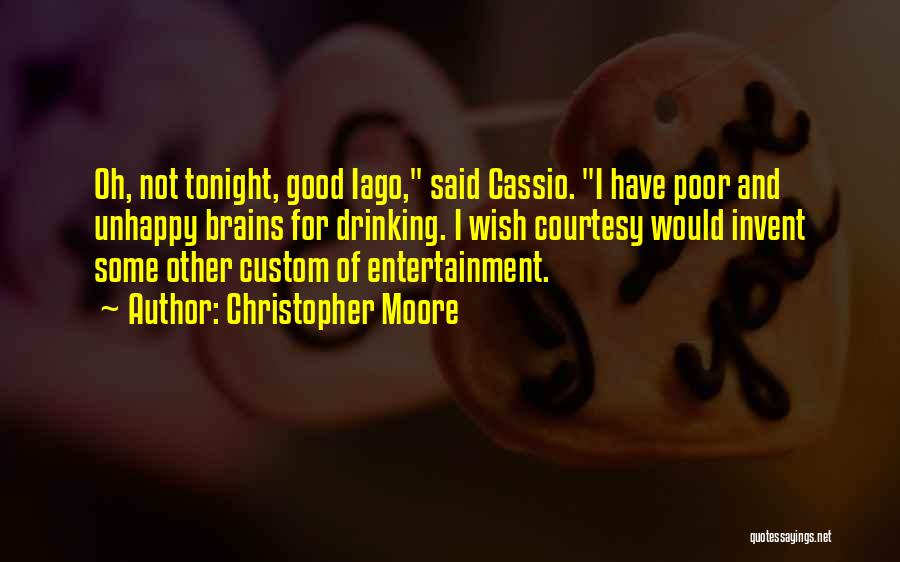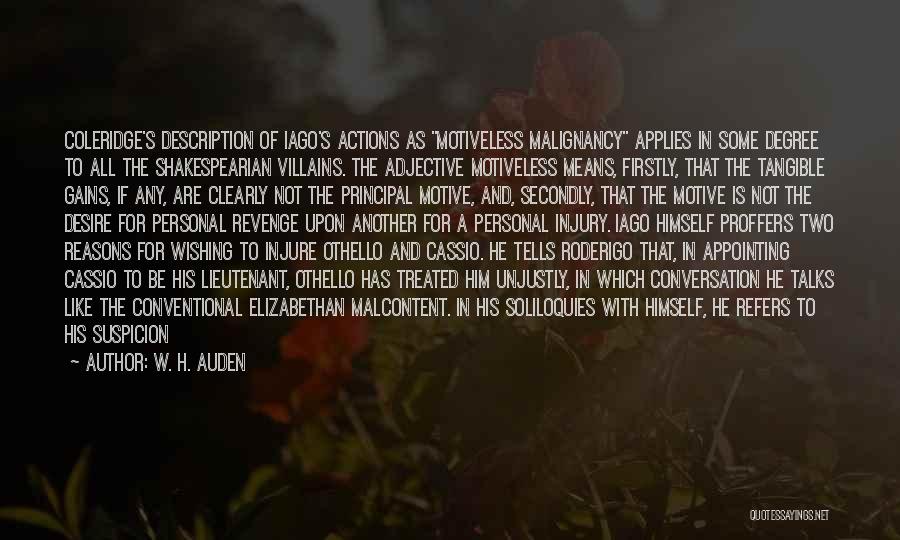Iago Vs Cassio Quotes & Sayings
Enjoy reading and share 4 famous quotes about Iago Vs Cassio with everyone.
Top Iago Vs Cassio Quotes

OTHELLO [Rising.] O, she was foul! - I scarce did know you, uncle; there lies your niece, Whose breath, indeed, these hands have newly stopp'd: I know this act shows horrible and grim. GRATIANO Poor Desdemona! I am glad thy father's dead: Thy match was mortal to him, and pure grief Shore his old thread in twain: did he live now, This sight would make him do a desperate turn, Yea, curse his better angel from his side, And fall to reprobance. OTHELLO 'Tis pitiful; but yet Iago knows That she with Cassio hath — William Shakespeare

The word "jealousy" is often used as if it were synonymous with envy; but I think the distinction worth preserving. Jealousy is predominantly concerned with the fear of loss of something one possesses, envy with the wish to own something another possesses. Othello suffers from the fear that he has lost Desdemona's love. Iago suffers from envy of the position held by Cassio, to which he feels entitled. — Anthony Storr

Oh, not tonight, good Iago," said Cassio. "I have poor and unhappy brains for drinking. I wish courtesy would invent some other custom of entertainment. — Christopher Moore

Coleridge's description of Iago's actions as "motiveless malignancy" applies in some degree to all the Shakespearian villains. The adjective motiveless means, firstly, that the tangible gains, if any, are clearly not the principal motive, and, secondly, that the motive is not the desire for personal revenge upon another for a personal injury. Iago himself proffers two reasons for wishing to injure Othello and Cassio. He tells Roderigo that, in appointing Cassio to be his lieutenant, Othello has treated him unjustly, in which conversation he talks like the conventional Elizabethan malcontent. In his soliloquies with himself, he refers to his suspicion that both Othello and Cassio have made him a cuckold, and here he talks like the conventional jealous husband who desires revenge. But there are, I believe, insuperable objections to taking these reasons, as some critics have done, at their face value. — W. H. Auden





